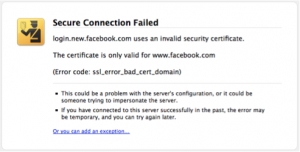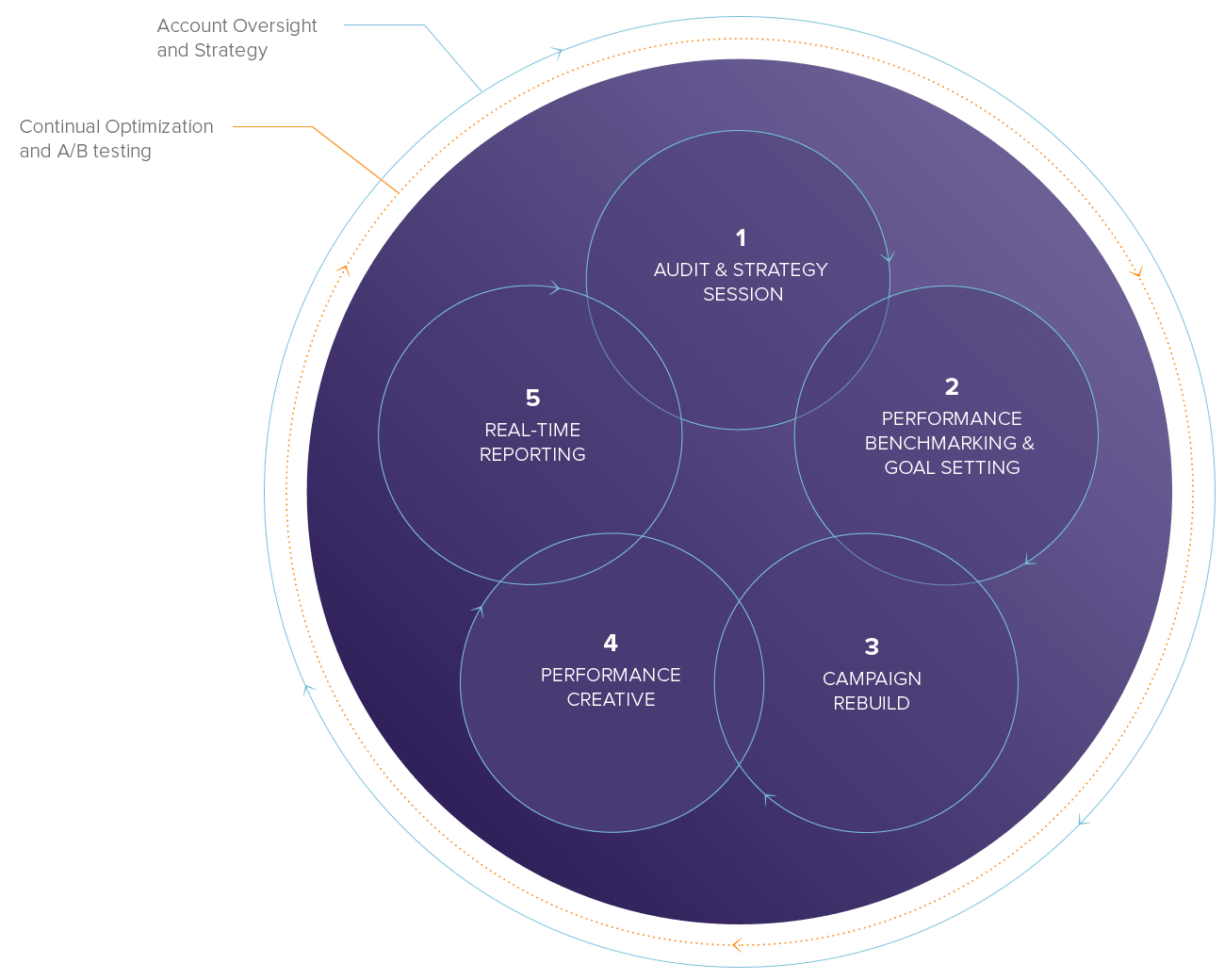How to Drive Your SEO Car Without Keyword Data
Organic Keyword Data no Longer Provided by Google!
 If you (or someone on your team), checks your web analytics regularly, you have probably noticed that the number of organic visits from keywords listed as “not provided” has climbed dramatically over the past year.
If you (or someone on your team), checks your web analytics regularly, you have probably noticed that the number of organic visits from keywords listed as “not provided” has climbed dramatically over the past year.
In other words, you can no longer see which organic keywords are performing well and which not. This is true no matter which analytics software you use, even Google Analytics.
Google is now encrypting ALL organic keyword data from Google searches. In this post, we’ll talk about what this means, why Google did this, and how you should prepare.
What Does Encrypted Search Actually Mean?
About one year ago Google announced that “SSL” encryption would be used for all searches, by signed in users, on Google.com. In the “Organic Search Traffic Keyword” reports In Google Analytics, Google added the label “(not provided).” Keywords from organic clicks, from signed-in users, stopped being listed on their own, and began being counted anonymously, under that label instead.
Recently, Google confirmed that they are now moving to 100% encryption. Over the next few months that’s what you should expect. No more organic keywords. 100% not provided.
 SSL stands for “Secure Sockets Layer” and is a protocol for communicating securely over the Internet. When you see a URL start with “https://” rather than “http://,” the “s” is an indication that the website is secure. Many sites, ecommerce sites in particular, will also have an SSL certificate that, when clicked, will confirm that it is indeed a verified secure site. With encryption, searches typed into Google are — well — not provided.
SSL stands for “Secure Sockets Layer” and is a protocol for communicating securely over the Internet. When you see a URL start with “https://” rather than “http://,” the “s” is an indication that the website is secure. Many sites, ecommerce sites in particular, will also have an SSL certificate that, when clicked, will confirm that it is indeed a verified secure site. With encryption, searches typed into Google are — well — not provided.
From Google’s announcement:
When a signed in user visits your site from an organic Google search, all web analytics services, including Google Analytics, will continue to recognize the visit as Google “organic” search, but will no longer report the query terms that the user searched on to reach your site.
At that time they also claimed, that the change will affect only a minority of your traffic. You will continue to see aggregate query data with no change, including visits from users who aren’t signed in and visits from Google “cpc”.
But Google has now acknowledged that ALL searches on google.com will soon be encrypted. So the keywords that are typed into Google will be known only to Google and will no longer be provided to any analytics software, including Google Analytics.
Why is This “100% Not Provided” Issue Important?
As noted above, we will have no more easy way to tie actual keyword searches to actual visits.
Until today, an SEO practitioner could use keyword data to determine how well a particular page performs. A page might get a high number of visits and we would know exactly which keyword phrase produced that traffic. Gone.
A page might get a decent number of visits but have a high bounce rate. We would know that the page needs to be tweaked to better meet the needs of those searchers. Gone.
A keyword might act as a prolific landing page for a specific keyword, but never lead to conversions. We would know that the content on this page is attracting people higher up in the buying funnel and we need clearer calls-to-action to capture their email addresses, for example. Gone.
A keyword might send a lot of traffic to a page on your site. Until now, you might notice that despite the traffic, the page is not ranking well. So you know that you can tweak that page and most likely earn a lot more traffic. Gone too.
Any strategic activity that was linked to understanding organic keyword clickthrough is gone and needs to be reworked, rethought or abandoned for some other less precise approach.
Why did Google decide to encrypt all this valuable data?
 In a terrific “Whiteboard Friday” video, Rand Fishkin argues that marketers have always had a clear understanding with the search engines: “We’ll let you crawl our sites, you provide us with the keyword data so that we can improve the Internet together.”
In a terrific “Whiteboard Friday” video, Rand Fishkin argues that marketers have always had a clear understanding with the search engines: “We’ll let you crawl our sites, you provide us with the keyword data so that we can improve the Internet together.”
He further says openly, “this is Google abusing their monopolistic position in the United States.” But there is really nothing we can do other than, adapt.
Google says the goal was to protect the privacy of users. But Google seems perfectly willing to overlook privacy issues when it comes to the paid ads. Queries leading to clicks on paid ads are not affected. Sites using Google AdWords continue to receive full keyword data. You can’t run PPC campaigns without this knowledge. So of course, one can’t help but assume that this is simply a way for Google to push more people into their AdWords service which is their bread and butter.
It’s also much harder for competitors to offer retargeting based on keywords.
Danny Sullivan points out that this prevents anyone but users advertising in Google’s network from doing keyword-level conversion tracking. With search referrers, you can determine what someone who searched for a particular term later did on your site. What further pages did they go to? Did they purchase a product or service? Without the search terms, you can’t do this type of analysis — unless you buy an ad. Conversion tracking at the keyword level is now another sales feature for Google.
NSA Controversy
There is also some speculation that this may actually be Google’s way of getting tough with the NSA (National Security Agency). Google – along with other tech companies – was recently accused of, and has denied cooperating with, the NSA’s PRISM spying program.
Is This Bad? Is SEO Dead (yet again)?
This is definitely going to make things harder for marketers and SEOs. Organic keyword traffic was an invaluable piece of the SEO puzzle. However, Google also recently announced the Hummingbird algorithm overhaul. This new algorithm engine essentially enables Google to understand more about user intent and context. Specific keywords may not be as important as what they are referring to in general. So it’s probably a good idea to step back a little from the religious keyword model and focus more on content, context, message, and the user experience. Google has been saying this for a long time, in other ways. SEO is alive and well, but yes, specific keywords are less important than page performance in general. And therein lies the key for our last question:
What Should I Do About it?
You can still get some sense of keyword impressions and clicks over a short span of time from Google Webmaster Tools. Do it. Can’t hurt. If you are not using GWT you should be anyway. It’s an amazing tool that provides a fantastic feedback loop between your site and Googlebot.
While very small compared to Google, both Bing and Yahoo still provide keyword data so you should be looking at their data as well.
If you are doing paid ads via Google AdWords, there is an Organic Data report in AdWords designed to help you compare organic vs paid traffic and keywords. Use this!
Study the performance of your landing pages!! This is the key today. Learn which pages are doing well. Google Analytics continues to give excellent data on landing pages, bounce rates, pageviews, and more. Use this data, and ensure that there is a clear focus for each page and you will be in a position to make some useful assumptions and support them with all of the other channels of information mentioned above.
Should I Run Paid Ads?
Clearly Google wants you to. And we, too, think you should. There are many reasons to run paid ads, as part of your web marketing strategy. First of all, we know that around 20% of clicks on search results are consistently on the paid ads (above and to the right of the organic). And moreover, when your site comes up in both the organic and the paid results for any particular search, statistics suggest more people click on the organic! So, it’s simply good policy to run some ads, even branded campaigns on your company or product name.
And, as mentioned above, Google AdWords includes a tool that shows organic statistics compared with paid, so you can make intelligent decisions about how much, or if, to bid for paid placement. This is now the best place to get reliable data on organic keyword performance. So even with a small spend, you can learn a lot from a Google AdWords account and campaign.
In the above-mentioned Whiteboard Friday, Fishkin recommends you run a branded campaign with broad match to see how branded traffic and impressions grow as compared with search traffic in general.
Track search volume on keyword buckets, and on branded terms, etc. Compare against visits to top pages receiving traffic.
SEO is About Solving Problems
You can continue to use many different SEO tools including tools from Google, to see what terms rank and what pages rank. It’s a little harder than before, but you can still make and test reasonable assumptions about the connection between the two. See what people are searching on. Searches are becoming longer and more specific. Searchers are trying to solve a problem. Create great content and an easy to use web site that leads them to solutions and you will continue to grow your relevance and authority in the search engines.
Let us know how this change is affecting you.
More Resources
http://analytics.blogspot.com/2011/10/making-search-more-secure-accessing.html
http://searchengineland.com/google-puts-a-price-on-privacy-98029












